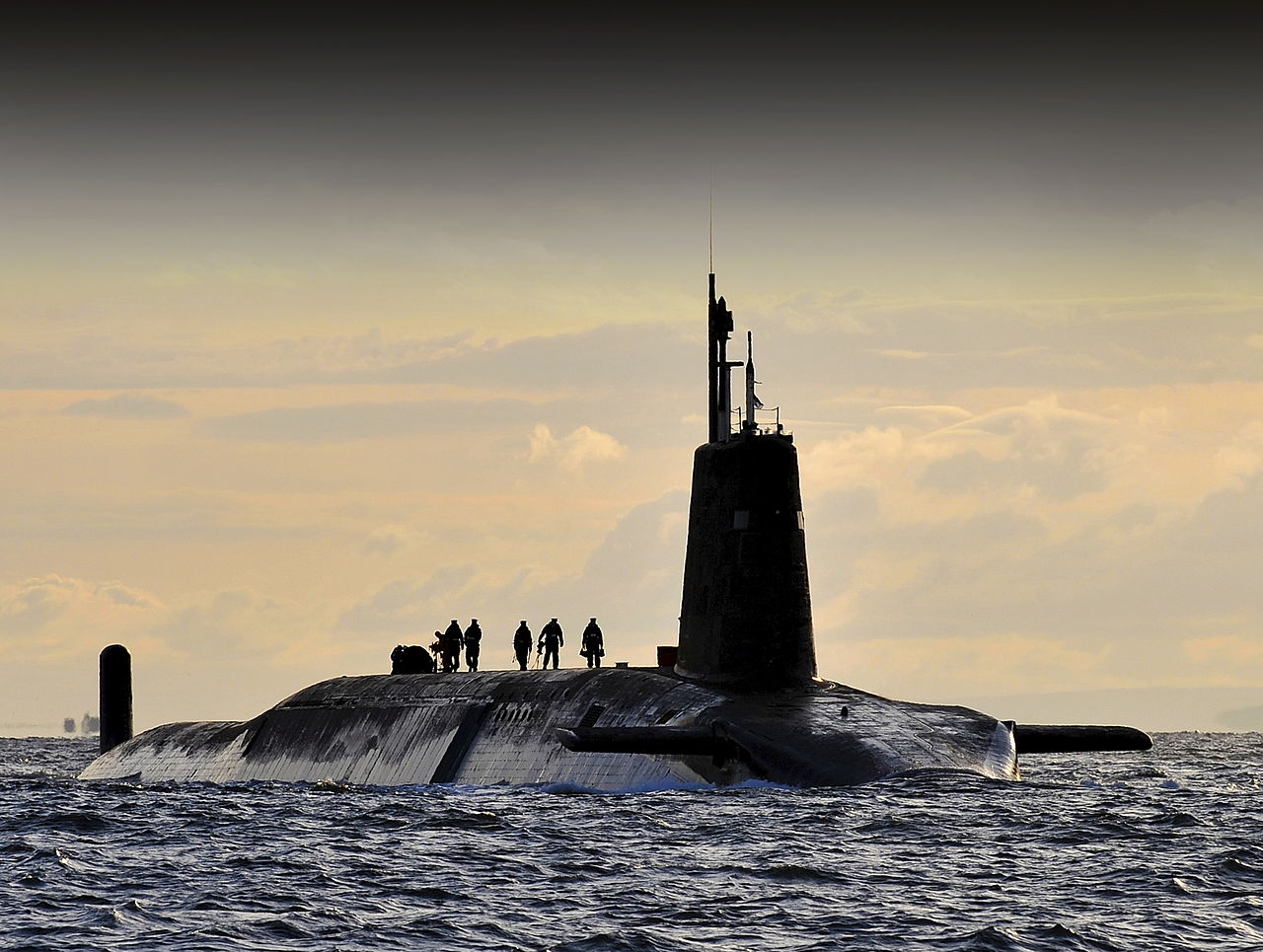The training of Royal Navy recruits at Faslane nuclear base could be delivered by American multinationals who are bidding for a lucrative Ministry of Defence contract.
Raytheon and Lockheed Martin, two of the world’s biggest private arms companies, are in the running for a UK Government project called Selborne which is estimated to be worth £2bn over the next 12 years.
Project Selborne is due to start from 2021 and the successful bidder will deliver all levels of naval training including recruits at a new submarine school at HM Naval Base Clyde, commonly known as Faslane, where Britain’s nuclear arsenal is kept.
Both Lockheed Martin and Raytheon already provide training and logistics support for the US military.
Politicians and critics of nuclear weapons and the arms trade have expressed concern, however, citing fears over safety, the US firms’ links to alleged human rights abuses and the creeping privatisation of the UK’s armed forces.
According to a contract notice for prospective bidders, Project Selborne will involve moving submarine training currently provided at HMS Raleigh, based at Torpoint in Cornwall, to Faslane.
The notice says: “Additional Training Services including: Move of the Submarine Training in HMS Raleigh to HMNB Clyde to form the Future Submarine School (FSS) relocating, modernising supporting the resulting training and equipment delivery and support in the new facility.”
The successful contractor will also provide training to the Royal Marines and manage “military assets, equipment, documentation” and a “cadre of Naval Service instructors”.
Raytheon makes laser systems for smart bombs in Fife and has taught in Scottish schools.
US arms firm linked to war crimes taught in schools 81 times
The firm has received more than £200,000 in grants from Scottish Enterprise.
It emerged in January that Raytheon had signed a £250m contract with the MoD to provide support services to the Royal Air Force’s fleet of surveillance aircraft.
The 11-year contract to support Shadow aircraft secured 200 jobs at Raytheon’s intelligence and surveillance hub in North Wales.
Raytheon is reportedly working on its bid with outsourcing firm Capita, criticised for a number of issues including wrongly archiving 130,000 NHS patient records.
Capita was also criticised over a 10 year contract signed in 2012 to manage recruitment for the armed forces.
Last December, however, the National Audit Office found that Capita had consistently missed the army’s targets, meaning personnel numbers in some frontline British army units were down by as much as a third, prompting concerns about their readiness for action.
Babcock, which currently provides large parts of the Royal Navy’s training programme, has also been selected to bid.
Labour MP Paul Sweeney said: “The war in Yemen has resulted in an appalling humanitarian crisis, and politicians on all sides of the political divide now have a moral duty to call for restrictions on the export of armaments to Saudi Arabia from the United Kingdom.
“Since 2010, the Tories have stripped over £2.5 billion from our armed forces budget and have already presided over a series of failed privatisation contracts.
“They have cut the size of the regular Army from a peak of 114,000 in 2010 to a target size of 82,000 by 2020 and privatised recruitment to a company called Capita in 2012.
“As a result of the botched performance of Capita, in July 2018 the Army was 5,600, or about 7%, short of the number of regulars needed, and it is highly unlikely to meet its target headcount for 2020.
“Privatisation has failed to deliver more efficient performance and is driven by an irrational ideological zeal to dismantle as much of the state as possible.
“Rather than outsourcing yet more taxpayers money to private American defence contractors that are linked to potential war crimes in Yemen, the Conservatives should be focused on addressing the collapse in morale and exodus of disillusioned personnel within the armed forces.
“We should be investing in our armed forces in pursuit of an ethical foreign policy, and the Tories should match Labour’s commitment to spend at least 2 per cent of GDP on defence.”
Arthur West, chair of Scottish CND, said: “The news that two private companies with questionable track records could be involved in training personnel at the nuclear weapons base at Faslane is very worrying indeed. It is also of great concern that the two companies involved are linked to the tragic conflict in Yemen.
Ross Greer, Scottish Greens MSP, said: “The UK Government’s links with companies complicit in alleged war crimes in Yemen is nothing new but it is absolutely shameful.
“Their insistence on outsourcing public jobs to the likes of Saudi Arabia’s arms dealer shows a damning disregard for human rights. I doubt my constituents in the shadow of Faslane will be comforted by these plans.”
Andrew Smith of Campaign Against Arms Trade said: “There is already a very close and compromising relationship between the arms industry, the armed forces and government. Serious questions need to be asked about all moves that bring the two even closer together.
“Raytheon and Lockheed Martin have a long history of fueling war and arming and supporting dictatorships around the world. Their arms have played a devastating role in the brutal bombardment of Yemen. They are the last companies who should be getting huge sums of public money.”
A spokesman for Lockheed Martin said: “Lockheed Martin can confirm that intends to bid for Project Selborne in order to provide world class training to the Royal Navy. As the competition is underway, it would not be appropriate to comment further.”
A version of this article also appeared in The Sunday Post on 25 June 2019.














